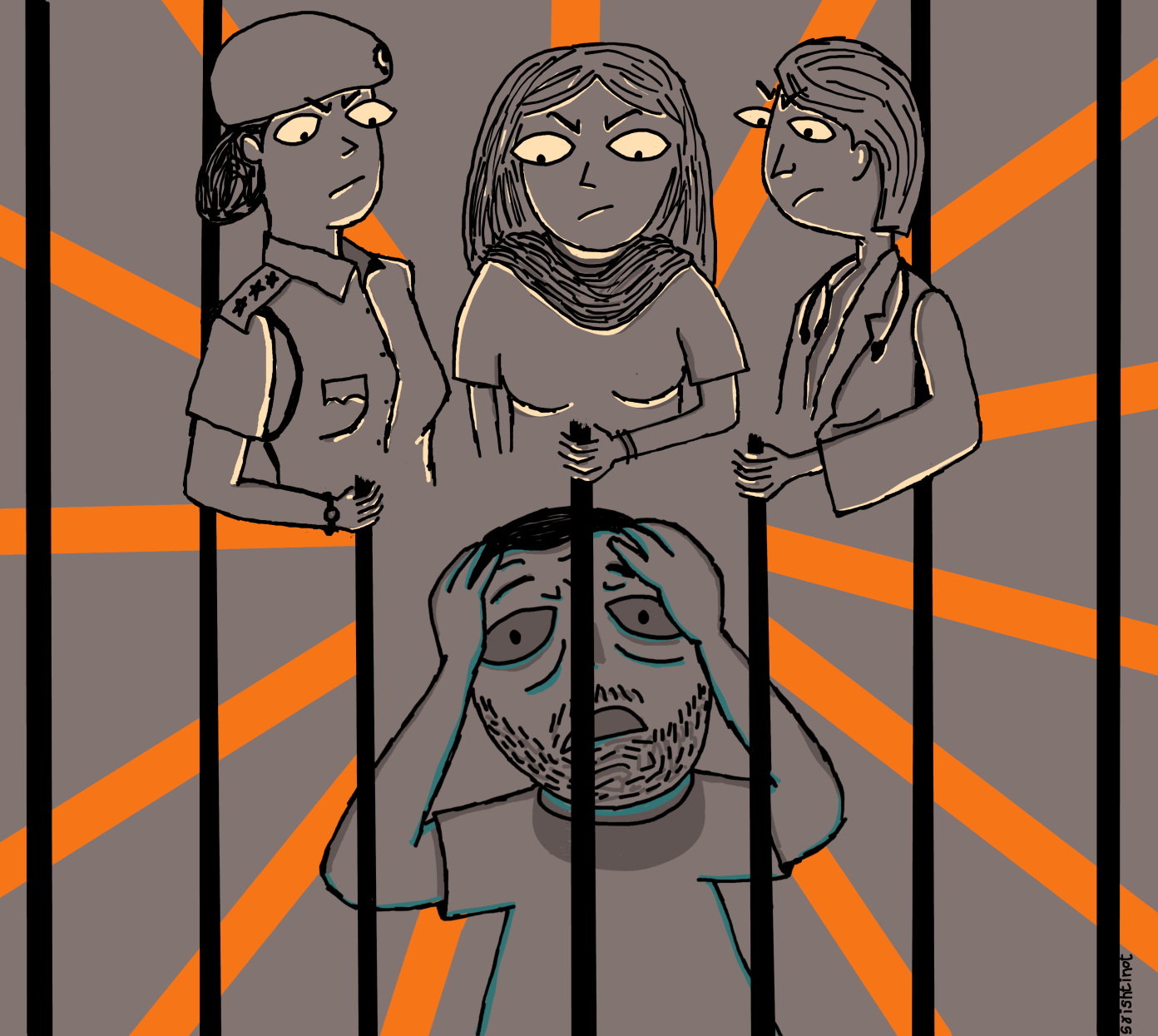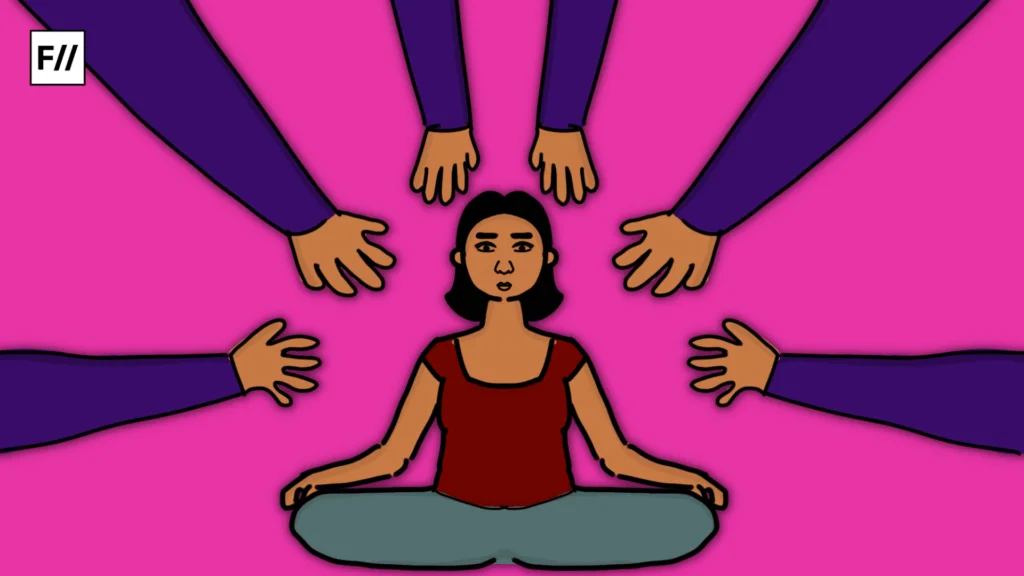On July 11, the Supreme Court asked the Centre to introduce a new Act that simplifies the process of bail. The Court observed that the investigating agencies’ increasing investment in arrests directly impacts individual liberty and gives the impression of a police state, which is “conceptually opposite” to democracy.
For instance, the number of arrests made by the Railway Protection Force from 2014 to 2018 has been more than threefold. Sedition cases, however, reveal the most pernicious abuse of custody. Analysing sedition cases since 2010, Article 14’s sedition database shows that 65% of around 11,000 opposition politicians, journalists, and academics in 816 sedition cases were implicated after Modi’s victory in the 2014 election. 96% of sedition cases for critiquing politicians and governments were registered after 2014.
On July 23, four former Supreme Court judges criticised the misuse of the Unlawful Activities (Prevention) Act (UAPA), sedition law, and National Security Act (NSA), claiming that the aforementioned laws have frequently been weaponised to suppress dissenting voices in the country. Former Patna High Court judge Justice Anjana Prakash called UAPA and sedition law “vague” and “susceptible to misuse.”
On July 23, four former Supreme Court judges criticised the misuse of the Unlawful Activities (Prevention) Act (UAPA), sedition law, and National Security Act (NSA), claiming that the aforementioned laws have frequently been weaponised to suppress dissenting voices in the country. Former Patna High Court judge Justice Anjana Prakash called UAPA and sedition law “vague” and “susceptible to misuse.”
Retired Supreme Court judge Justice Aftab Alam contended that UAPA has failed both “national security and constitutional freedoms” since the reclassification of terrorist offences under UAPA has mischaracterised domestic dissent as an actual threat to national security.
The Supreme Court’s remark concerning the bail process is significant, given present circumstances. Earlier this year, the Criminal Procedure (Identification) Bill, 2022, was introduced. The Bill authorises police officers and prison officials to take the measurements of any person who has been convicted, arrested, or detained. Introduced for its relevance to today’s technologically advanced world, it repeals the existing Identification of Prisoners Act, 1920 that primarily allowed the documentation of finger and footprint impressions. The 2022 Bill goes a step further as it sanctions officers to record palm-print impressions, photographs, iris and retina scan, biological samples, behavioural attitudes, handwriting, signatures, etc.
Justice Sundresh, who authored the July 11 judgement, noted that jails are “flooded” with undertrial prisoners: “The statistics placed before us would indicate that more than two-thirds of the inmates of the prisons constitute undertrial prisoners. Of this category of prisoners, majority may not even be required to be arrested.”
On March 28, the Union Minister of State for Home Affairs Ajay Mishra explained that the 2022 Bill would help to investigate agencies and increase prosecution. He added that there is “a chance of an increase in conviction rate in courts.” The 2022 Bill, therefore, provides greater support and resources to the investigating agencies, enabling an increase in convictions. The Supreme Court’s order to simplify the bail process is another step forward in the last two decades in shifting the emphasis from the agencies enabling incarceration to the people actually confronting it.
Justice Sundresh, who authored the July 11 judgement, noted that jails are “flooded” with undertrial prisoners: “The statistics placed before us would indicate that more than two-thirds of the inmates of the prisons constitute undertrial prisoners. Of this category of prisoners, majority may not even be required to be arrested.”
The Supreme Court’s remark concerning the bail process is significant, given present circumstances. Earlier this year, the Criminal Procedure (Identification) Bill, 2022, was introduced. The Bill authorises police officers and prison officials to take the measurements of any person who has been convicted, arrested, or detained. Introduced for its relevance to today’s technologically advanced world, it repeals the existing Identification of Prisoners Act, 1920 that primarily allowed the documentation of finger and footprint impressions. The 2022 Bill goes a step further as it sanctions officers to record palm-print impressions, photographs, iris and retina scan, biological samples, behavioural attitudes, handwriting, signatures, etc.
Jail occupancy rates were over 100% in 15 states in 2020. With an occupancy rate of 177%, Uttar Pradesh has reported the highest number of convicts and the maximum number of undertrials at the end of 2020. The overall number of undertrial prisoners across the country has increased by 11.7%. Undertrials are generally kept in custody to ensure that they do not influence witnesses, but inordinate delays in trials often keep people in jail for a longer period than they would have to be if they were actually convicted.
Mohammad Irfan, for instance, spent years in jail before his acquittal in June 2021. He was among the five Muslims arrested in Maharashtra by the anti-terrorism squad under many charges, including UAPA, for allegedly seizing firearms and conspiring to kill politicians and police officers. Bashir Ahmad Baba was similarly arrested in Gujarat for allegedly recruiting Muslim men for Pakistani training camps. He spent 11 years in prison before his acquittal in 2021.
Jail occupancy rates were over 100% in 15 states in 2020. With an occupancy rate of 177%, Uttar Pradesh has reported the highest number of convicts and the maximum number of undertrials at the end of 2020. The overall number of undertrial prisoners across the country has increased by 11.7%. Undertrials are generally kept in custody to ensure that they do not influence witnesses, but inordinate delays in trials often keep people in jail for a longer period than they would have to be if they were actually convicted.
KA Najeeb, who was among the 14 people arrested for chopping off Professor T.S. Joseph’s hand for allegedly insulting the Prophet, was granted bail in 2021 by the Supreme Court. A three-judge bench observed that Najeeb had served over five years in jail and judicial custody. The 13 co-accused who had been convicted in the same case had been sentenced to prison for eight years. Since Najeeb had completed two-thirds of such incarceration, the Court remarked that he had “already paid heavily for his acts of fleeing from justice.”
Though the case sets a precedent for other people accused in UAPA, including those arrested in the 2018 Bhima Koregaon case, the pattern of acquitting or granting bail following a person’s incarceration merits reconsideration. The time spent by undertrials in prison can have life-altering consequences for the person and their family, causing societal exclusion, financial instability, and deterioration of mental health.
In its many directions, the Supreme Court’s demand for a separate Act for streamlining the grant of bails is an important step. The Court has further asked the government to reconsider the Code of Criminal Procedure, which acts as the chief legislation on procedures pertaining to the regulation of substantive criminal law.
Also read: 5 Judgments From 2021 That Let Us Down
Modi has — rather unsurprisingly — now urged the judiciary to accelerate the release of undertrial prisoners. Addressing the inaugural session of the All India District Legal Services Authorities meet on July 30, Modi said, “As important as access to the judicial system is for any society, justice delivery is equally important.” Law Minister Kiren Rijiju said that the National Legal Services Authority’s campaign attempts to identify eligible undertrial prisoners for release and recommend their cases for review. The e-Courts mission started with virtual courts. Rijiju added that 24-hour courts “have started functioning for crimes like traffic violations.”
As stakeholders in institutions continue to shift the onus on each other, perhaps it’s time to reconsider and revisit abolitionist feminism. A conversation on abolition addresses the problems that make crime feasible and lead to conditions of incarceration. The dominance of carceral feminism has prevented a serious assessment of the scope of abolitionism for feminists.
An overemphasis on seeking imprisonment of offenders continues to remain the idiom that defines mainstream feminism. The result is gross neglect of individual circumstances, social norms, and power dynamics, all of which affect feminist attitudes toward people from a particular class and caste group.
Would we seek redressal from the Supreme Court or from Prime Minister Modi? Notwithstanding their merits, do these latest developments signal effective change or do they give the impression of change?
Also read: The Caging Of Women’s Dissent By Patriarchal Policing In A Hyper-Masculine Regime
Featured image source: iPleaders




